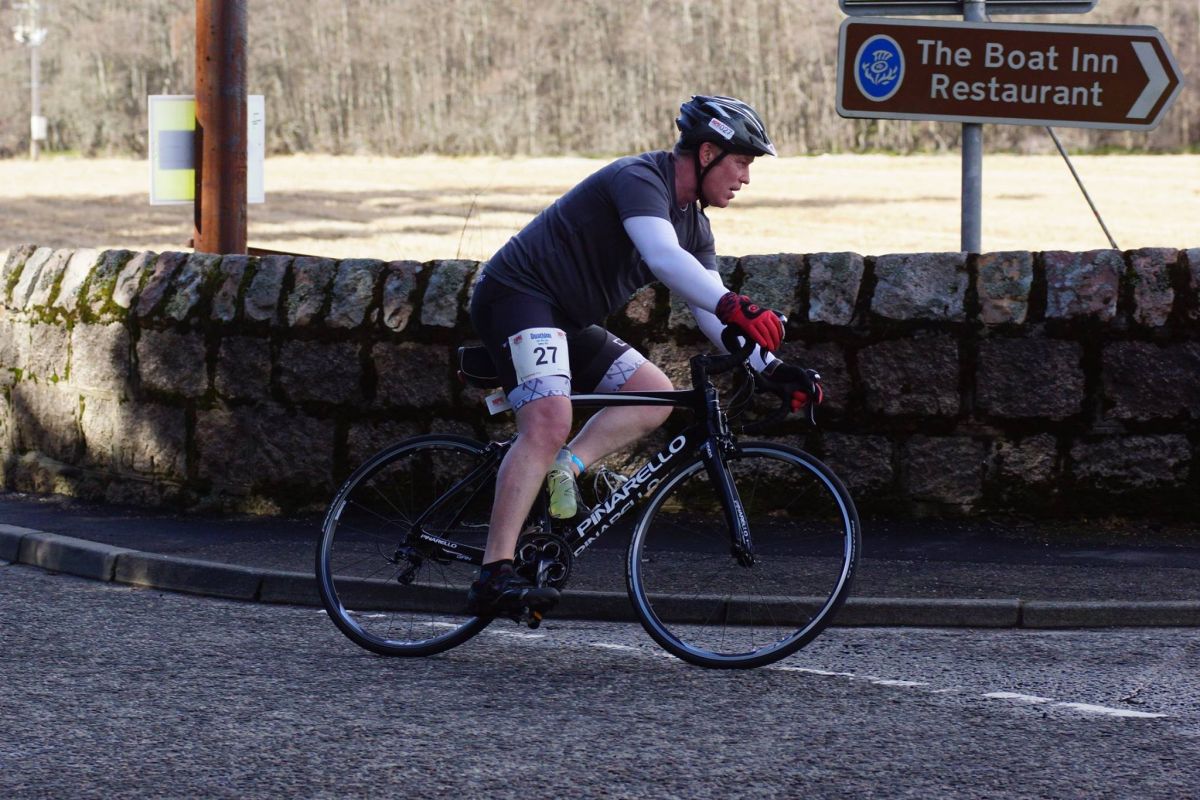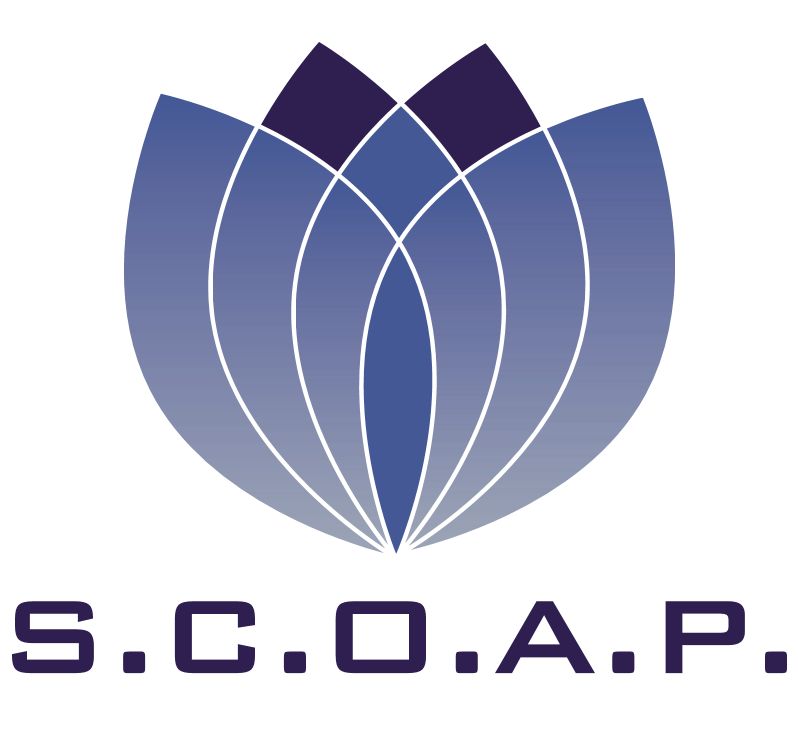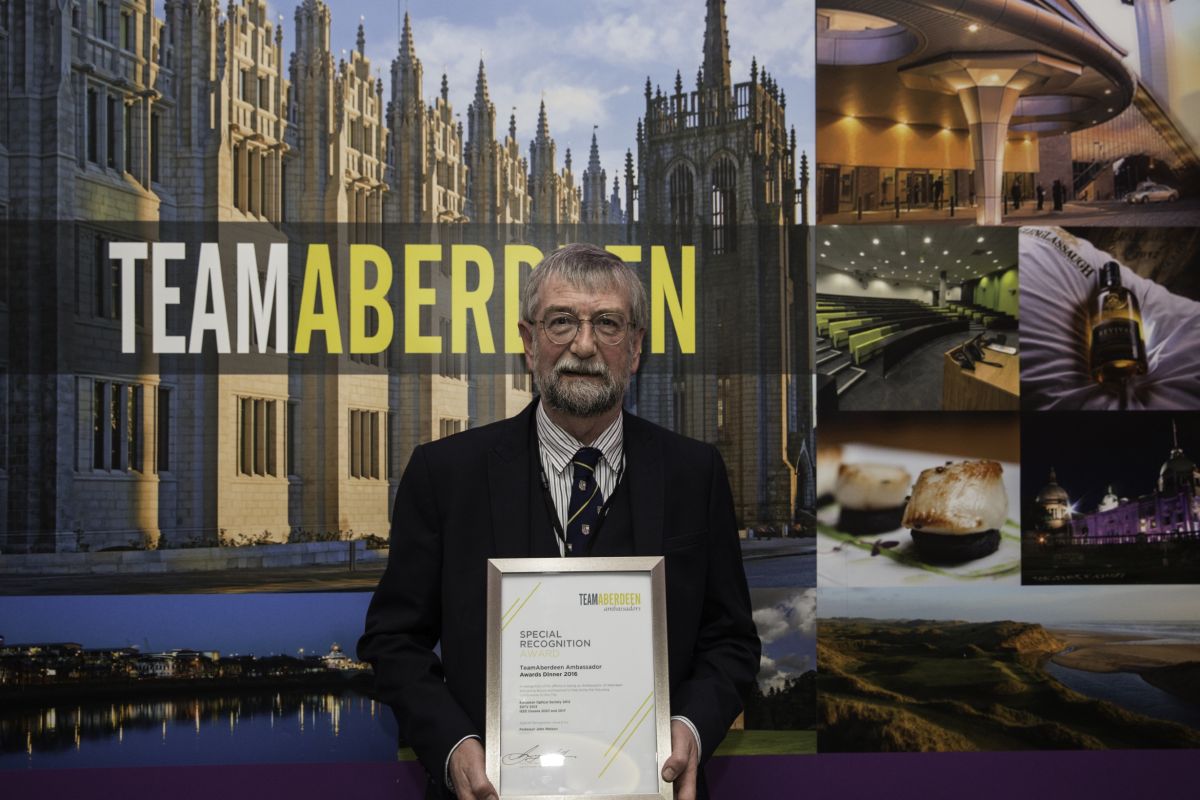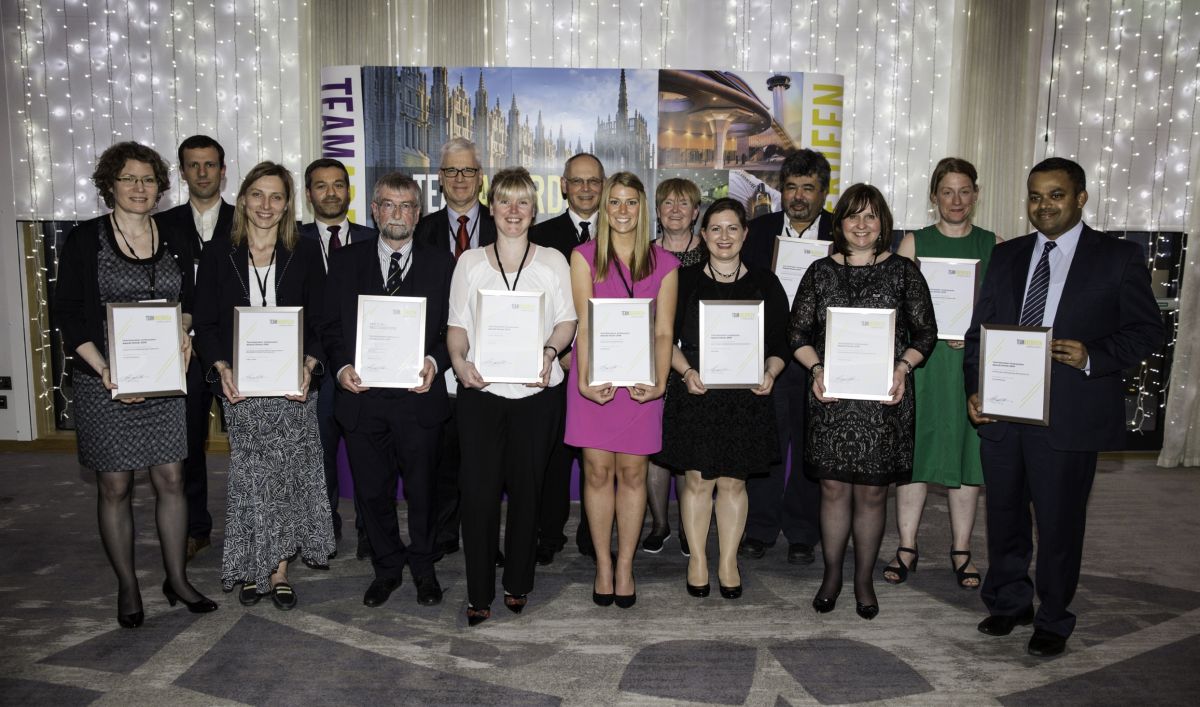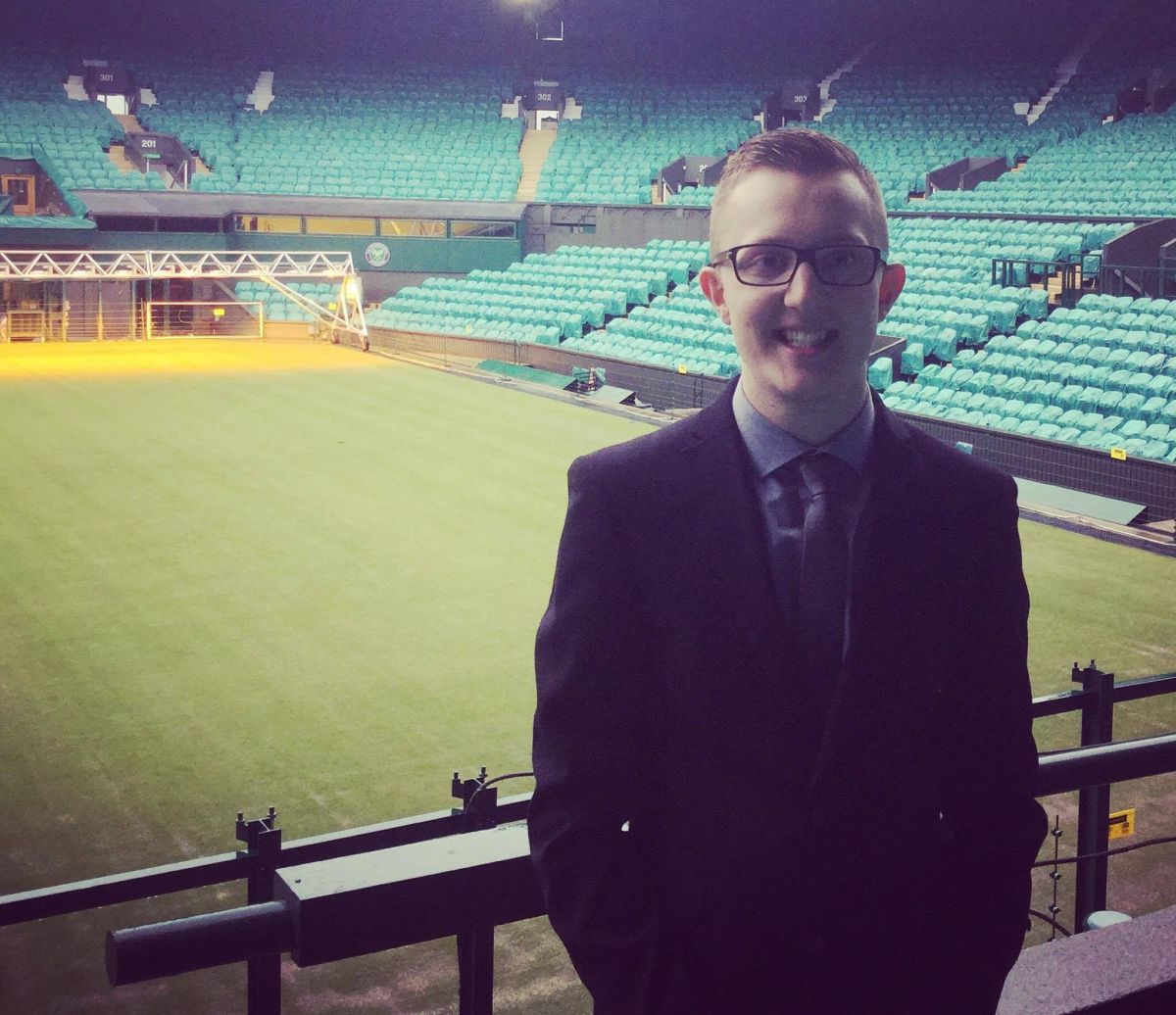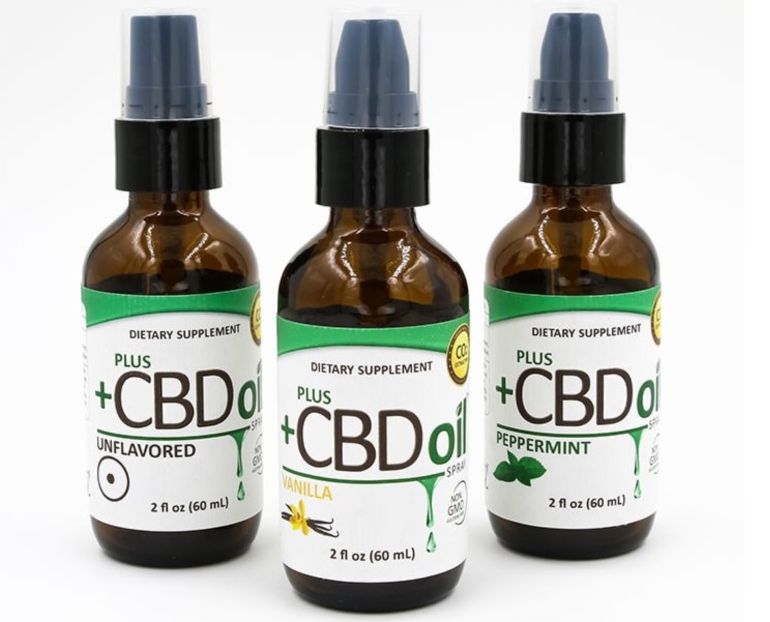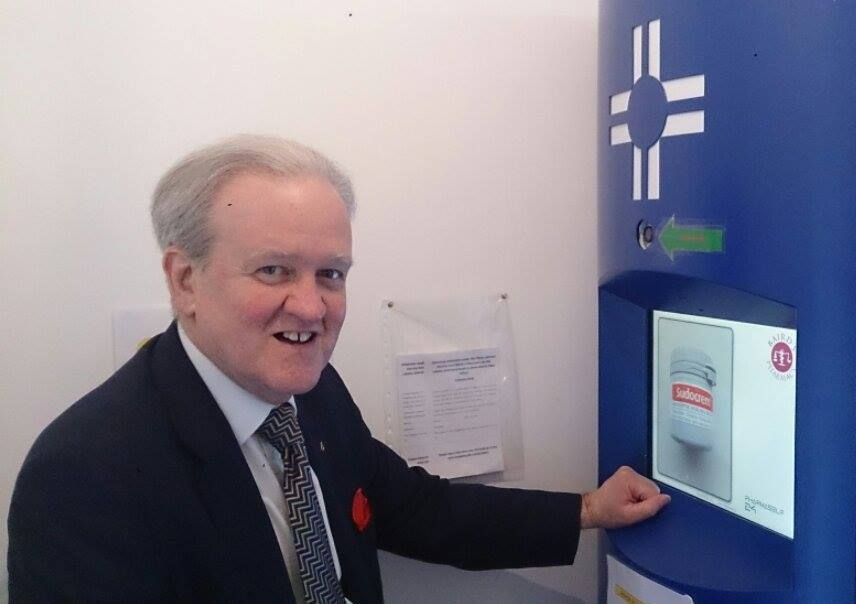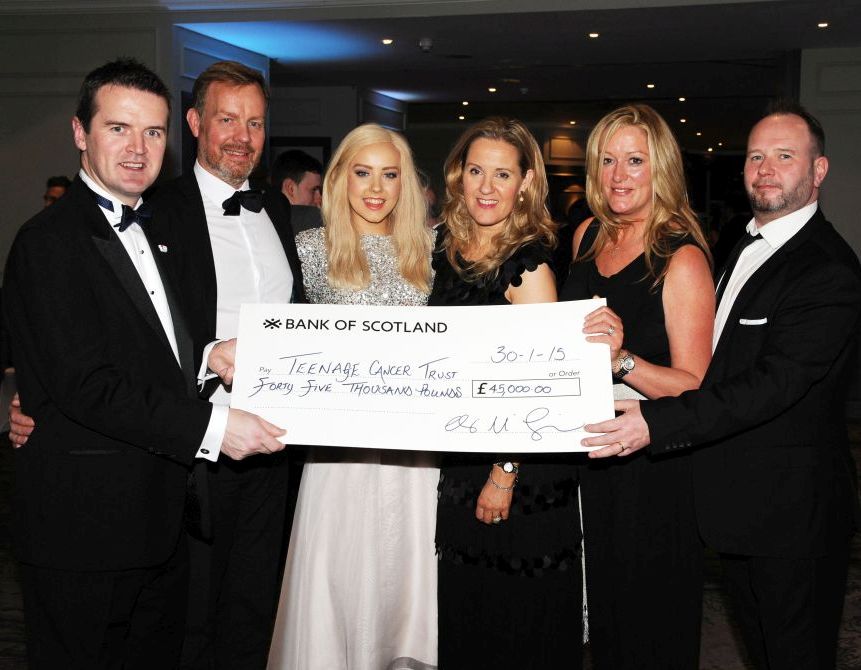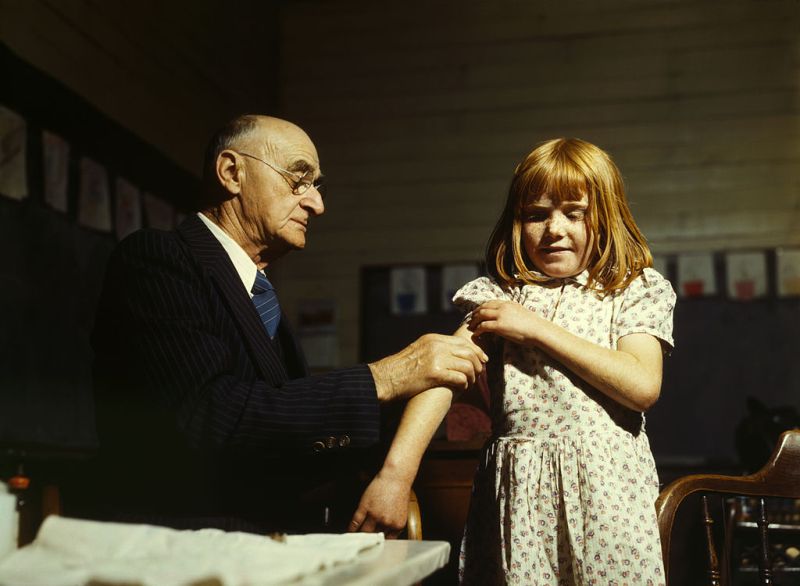Voice’s Old Susannah takes a look over the past week’s events in the ‘Deen and beyond. By Suzanne Kelly.
 Tally ho! It’s all happening in the Deen and Shire. The Fyvie Festival was last weekend, offering a nice day out including the chance to look at the priceless Tiffany window in Fyvie Kirk. Celebrate Aberdeen took place, rain and shine, across the city. Acts such as Youse Dancin’, The Black Gold Bandits, Iron Broo and The Gerry Jablonski Band entertained the soggy crowds.
Tally ho! It’s all happening in the Deen and Shire. The Fyvie Festival was last weekend, offering a nice day out including the chance to look at the priceless Tiffany window in Fyvie Kirk. Celebrate Aberdeen took place, rain and shine, across the city. Acts such as Youse Dancin’, The Black Gold Bandits, Iron Broo and The Gerry Jablonski Band entertained the soggy crowds.
Anthony Baxter’s film will open in cinemas across Scotland on Friday the 5th. Alex Salmond has been invited to the premier in Aberdeen with a Q&A session and panel.
He’s also been invited to visit the Menie Estate residents; it’s a shame he’s been too busy to visit his constituents there, but give him another few years to fit it in, and I’m sure he will. No word on whether Sarah Malone of Trump will attend.
This week I had planned to write about the menace the city is bravely tackling. Drunk Driving? The few slightly tipsy people occasionally seen in the city centre on weekend nights? Fuel or food poverty?
No, the problem we have all been afraid to face is finally in the spotlight: the sandwich board. These dangerous, frightening health menaces lurk outside sandwich shops (appropriately enough), restaurants, pubs and more: it’s a wonder anyone’s still alive.
The council is taking decisive action against these horrendous trip hazards, you’ll be delighted to know. Of course, the sign draws attention to itself (that’s its purpose you see), and you’d have to be as drunk as an ex-councillor not to see the signs.
A hardened cynic might ask the city why it’s going after sandwich board signs, given that one or two other cities round the world somehow manage to co-exist with these signs. I propose we sent our officers and provosts off on a round-the-world fact-finding mission; they are good at that sort of thing.
I suppose that since the city has smoothed every square inch of pavement and street that it is responsible for, it’s now time to turn its attention to the scourge of society, the sandwich board. I for one feel safer knowing that something will be done about the sandwich board plague. Chalk up another one for ACC; the writing’s on the wall for signs.
However, there is something nearly as important as the city’s challenge to the sign menace. This isn’t an Aberdeen or even a Scottish story, so we really should pay it no attention at all. However, I thought looking at the story of little Ashya King and how the police and Southampton Hospital had nobly gone to his rescue would be of interest this week.
A brain tumour landed this child in Southampton General Hospital; which would not fund a particular treatment his parents decided they wanted to try. It could prove life-saving. The hospital were certainly not able to guarantee that the treatment they offered would be the best or the only option.
The parents did their own research (kind of like those meddling parents who invented Lorenzo’s Oil when their child was ill ), and wanted their son to be treated at a clinic abroad, which said they would do the treatment now and worry about payment later (which in itself is rather a strange concept, almost as if treatment and medicine should be available to those who need it regardless of money concerns.I wonder if this might catch on in the UK?).
The parents had a crazy idea, and decided to get their son treated at this clinic, and moved to take Ashya there.
Well, Southampton General Hospital reacted in the only manner open to it: they instantly moved to take Ashya into custody, issued press releases saying that Ashya was in grave danger, called in the police and demanded Ashya’s return so they could get custody of him and continue to deny him the desired treatment. Sounds perfectly reasonable and measured to me.
Obviously the hospital and its staff know best, just like they do up and down the UK. There might not be a specific law that says you have to keep your child in a hospital which refuses to pay for a treatment which might well help him. However, the police were only too happy to go on a Spanish vacation – sorry – suffer the hardship of going to Spain — to have the sick child put in isolation and his parents locked up, unable to visit.
(You might think that the Spanish police assisted by the dashing, intelligent, sensitive UK police force would be sufficient to stop two distraught parents from absconding from a hospital visit to their cancer-stricken son, but you would of course be wrong).
For some reason (perhaps the outcry of one or two people in the UK) the parents have been released from custody, an extradition order to the UK has been lifted, and if the hospital agrees, he may get treatment after all. We’ll see what happens next in due course; perhaps some related definitions will shed some light on the goings-on to date.
Neglect: (English Noun) to treat an individual or an animal in such a way their needs are not met; to ignore, fail to assist.
Of course, hospitals will only ever care about the patient’s welfare. Money, targets, shutting up whistle blowers and defending lawsuits never enter into it. If Southampton moved to take a boy with cancer away from his parents, it was only for his own health and happiness. I’m sure it consulted its best child psychologists in advance, and confirmed that no mental or emotional harm would come from their actions.
That’s why hospitals call the police on anyone who would disobey them, and that’s why the police and hospitals turn involved families into criminals – all for the patient’s welfare.
Southampton accused the parents of ‘suspected neglect’ for taking their son to get treated.
It may seem strange that in one part of the UK suspected neglect of one child results in police jetting off to Spain, and in another part of the UK like Rotherham it results in 1400 or more young people being sexually abused and absolutely nothing being done about it despite people coming forward, abuse accusations being swept under the carpet and victims discredited, but there you go. I guess you have to expect these minor regional variations in policing.
But let’s look at the august, professional men and women who run things at Southampton General Hospital, and why they have the right to accuse the King parents of neglect.
In 2010 a boy named Matthew Kenway, of Fareham, Hampshire, died at Southampton General Hospital ; he was going to have a routine kidney operation. No one checked his heart was still working; they didn’t hook up a heart monitor. Eventually they realised there was a problem, and still there seems to have been a delay in getting him help. A fatal delay, but it could have happened to anyone really. So, no negligence there then.
With the tiny amount of things that go wrong in the medical profession, and with the support and encouragement given to whistle-blowers (on the rare occasion they are needed), you wouldn’t think there would be such a thing as a website called www.clinical-medical-negligence.com – yet somehow there is. According to it:
“The family’s solicitor Patricia Wakeford, of Blake Lapthorn, said: “Evidence heard at the inquest raised grave concerns about the quality of care that Matthew received and the processes that were in place at Southampton General Hospital at the time of Matthew’s death. Shortly after 3am, the oxygen monitor probe appeared not to be recording his oxygen levels. The nurse initially thought the machine might be faulty, but it transpired that Matthew’s heart had stopped.
“Eventually, a cardiac arrest call was put out and the arrest team then attempted, for 40 minutes until 4.20am, to resuscitate Matthew but they were unsuccessful and he died. During the course of the two-day inquest, a series of key findings emerged suggesting there were serious shortcomings in the care Matthew received. At post-mortem it emerged that the stent placed in the left kidney was not in the correct place.”
http://www.clinical-medical-negligence.com/2014_02_01_archive.html#.VATNj8J0zIU
These are just the sort of people you want wresting legal control of your son away from you.
I guess anyone can make a mistake. Except Southampton General. This might not be neglect, but there was a wee matter of apparent experimenting on patients. Southampton seems to have been involved in a trial of a new antibiotic made by Bayer; it must have been very exciting for the patients who got this drug.
Doubtless they were all made perfectly aware of the risks of this trial taking place in the hallowed surgical wards of Southampton; to do otherwise might have looked like neglect. Alas, one website isn’t that happy about it:
“This information [about the experimental drug] was not revealed to the hospitals before up to 650 people had undergone surgery, violating their human rights. The trials resulted in nearly half of the people at one test centre in Southampton developing potentially life-threatening infections. At least one patient died, and another developed an infection so severe that his relatives were initially told he would not survive. Nearly half the patients at Southampton Hospitals Trust developed post-operative wound infections requiring emergency therapy. Infection and mortality rates at the five other trial sites were never revealed on grounds of “confidentiality”
“Stephen Karran, a retired consultant surgeon from Southhampton, was concerned about the trial. He pointed out the flaw in the earliest possible stage, and contacted the press after the trial went ahead unaltered anyway. Bayer has confirmed that it knew of absorption problems with the drug before the study began. However, they still used the dangerous drug for two years, are still keeping trial results secret, and have not paid compensation to the relatives of patients injured or killed in the course of its unapproved trials.” http://www.corporatewatch.org/company-profiles/corporate-crimes-3
It might have been Bayer’s drug trial, but Southampton Hospitals Trust ran with it. I’d not want to be thought cynical, but often these drug trials involve a wee bit of money going to the institutions involved. The mega international pharmaceutical sector is every bit as benevolent as you would think.
I’m sure Southampton will be happy to explain more about people being experimented on, how informed consent was obtained, when they stopped the trials and how many people were at risk – oh, and how much money they got for this and other experimentations. Keeping people from risk and preventing neglect: that’s what Southampton is all about, as the King family will tell you.
It will be interesting to see what evidence there is that taking the little boy to be treated at a different hospital is tantamount to neglect.
If this ever reaches a courtroom, I hope no serpentine defence lawyer will ask the hospital any questions about neglect past and present. After all, the hospital wasn’t to know the boy was gone for 6 hours, despite his supposedly needing constant care and attention. You and I are of course laypeople, but to some that 6 hour gap in a young child’s cancer nursing might seem ever so slightly neglectful on the part of Southampton.
Communication Breakdown: (English compound noun) A deterioration or cessation of dialogue (also an excellent Led Zeppelin song)
According to the BBC:
“Dr Michael Marsh, medical director at University Hospital Southampton NHS Foundation Trust, said he regretted that their communication and relationship with the King family had ‘broken down’.”
http://www.bbc.co.uk/news/uk-england-29009883
The hospital was great at communicating. They communicated to the police and other authorities that they wanted custody of this boy, that he was possibly neglected, and that he was at great risk because a battery in a feeding tube system might die.
What a pity then that their paid in-house media people never noticed the video which spread like c-difficile across facebook showing a happy Ashya and his parents abroad, with no feeding or other problems. They would of course have backed off.
Old Susannah was trying to find out a few things about this feeding tube at the centre of the hospital’s attempt to get custody of the boy: what kind of battery did it have, how often did it need to be replaced, were the parents aware the battery had to be changed, did they try to call or text the parents to tell them about the battery?
Obviously they did all that and didn’t just run to the media and the police, complaining that communication had broken down. I will be very reassured to know how much effort the hospital made to tell the family about the feeding system when they had left.
I also was going ask other questions (What did the hospital think Ashya would be going through stress wise because of the hospital and police actions and how would that affect his emotions and health? Why was there a 6 hour gap between anyone visiting this ill child before they realised he was gone? – and a few other minor points).
Alas! There is indeed a communication breakdown. The hospital’s media team has failed to answer its phone on any of the many times I phone it. I left 3 messages on 2nd September with my email and my mobile number. Yes, a communication breakdown is a serious problem.It’s very good of Southampton to regret having one.
Obviously they don’t regret criminialising a family, adding to their anxiety, having people arrested, refusing to fund treatment, and trying to take custody of someone’s sick child. If they did, they’d have apologised for it. They are sorry however for the communication breakdown. Old Susannah can almost hear that familiar refrain so often given to the media: “we don’t discuss individual cases.”
Except when it suits them.
They told the world the age, sex, condition name of Ashya; they shared his and his parents’ images. It will be a breeze for them to prove in court that they only breached the data protection act after taking every other step possible. The phone log of their calls to the Kings will be a very reassuring document indeed.
Heroic: (English adjective) Having qualities of braveness, courage fearlessness and strength.
In this whole saga, the shining heroic actions of a few people show through. Not only was Southampton brave enough to issue press releases claiming the child was in grave danger and take custody away from the parents to the state, the police showed heroism as well.
They bravely lept to conclusions; they bravely got on a plane to Spain, they courageously raided Ashya’s grandmother’s house for a much-needed intensive search. A Belfast Telegraph article reports:
“Assistant Chief Constable Chris Shead said last night: “We have been told by medical experts that the battery life on the machine that administers his food is now likely to have expired. We don’t know whether the King family have any spares, the knowledge or any way of recharging the battery. If they don’t without properly administered food, Ashya’s condition will deteriorate very quickly. With each hour that passes our concern for him grows.””
If I didn’t know better, I’d start to wonder if the UK’s police have a shoot/arrest/taser/search/criminalise first and don’t ask questions later approach.
How come the hospital couldn’t tell the police whether or not the family knew how to work the apparatus? When it was shown that the boy was fine and happy wasn’t that the end of it? Thank goodness other such breaches in the Inspector Morse-like investigation techniques of the police are once in a lifetime.
Old Susannah also guesses that, like the hospital, no one at the police was quite heroic enough to call the family or leave them a message about the battery; doubtless we’ll find out what they did about the battery in due course. It would be cynical to suggest this was all a witch hunt. Much better it turned out the way it did. Let this be a lesson to other parents (or to people in the past who have tried to interfere with hospitals, like these people ).
Mrs King, the grandmother had this to say after her flat was searched (perhaps they would have found the family hiding in the chiller cabinet or under a bed?):
“They (the authorities) are the ones who are cruel because they have taken poor little Ashya who is dying of a brain tumour and they won’t let the parents, my son and daughter-in-law, they won’t let them see him at all.
“It’s terrible, it is so cruel it is unbelievable.”
She added:
“To try and make out that he has been neglected… Why haven’t we got any human rights? They keep on, the EU, about human rights. Where are our human rights? We have got none.”
http://www.independent.co.uk/news/uk/home-news/ashya-king-brother-of-fiveyearold-boy-defends-parents-actions-in-new-video-9702977.html
Before ending this definition of heroics, the police and hospital might well have got away with it, if it weren’t for some meddling kids. Naveed King, elder brother to Ashya has been spending his time campaigning, raising awareness, looking after his other siblings, dealing with the media, raising funds, posting updates on Facebook and other such activities.
Surely he should have been doing his homework instead or playing video games? The other King children held fast as well. Let’s see whether there isn’t some bureauocrat out there ready to criticise Naveed’s impertinence. We can’t have young people running around criticising authorities and sticking up for their families now, can we?
Next week: don’t expect answers from Souuthampton, but I’ll keep asking.
- Comments enabled – see comments box below. Note, all comments will be moderated.
[Aberdeen Voice accepts and welcomes contributions from all sides/angles pertaining to any issue. Views and opinions expressed in any article are entirely those of the writer/contributor, and inclusion in our publication does not constitute support or endorsement of these by Aberdeen Voice as an organisation or any of its team members.]
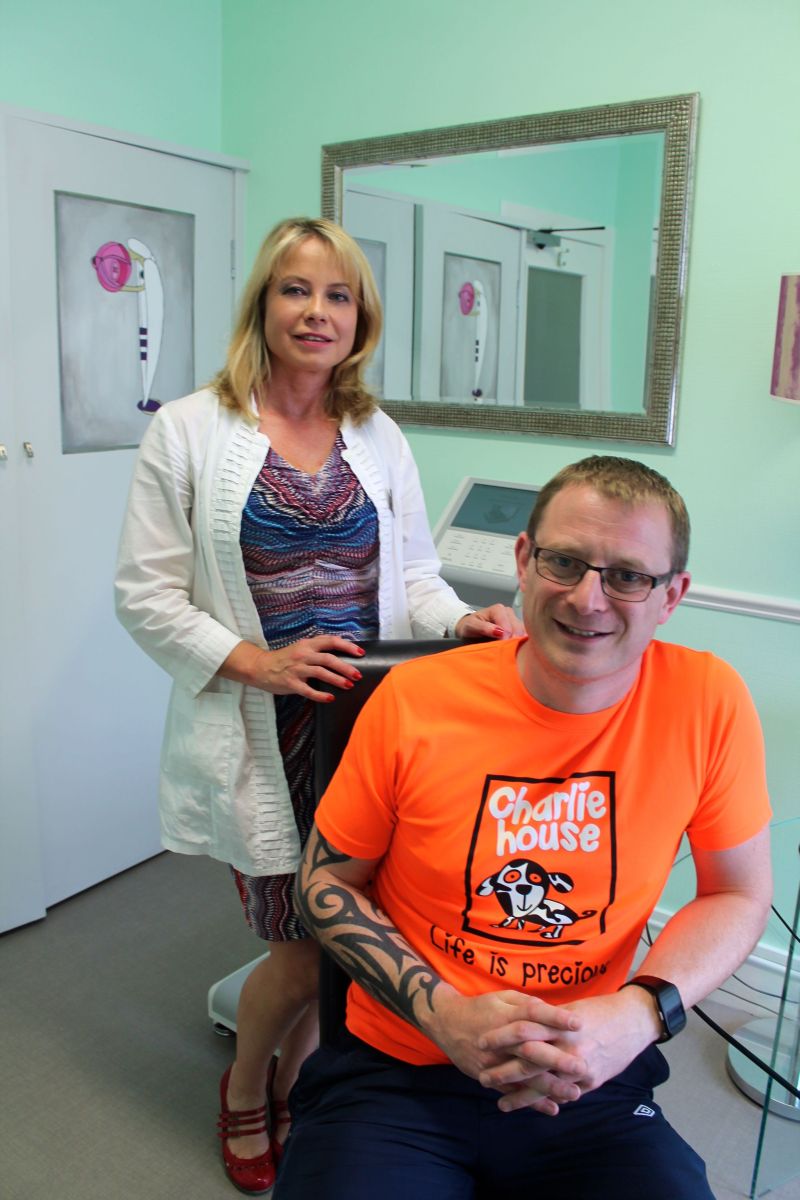 A private clinic in Aberdeen is supporting a local duo with a challenge that will take them around the moon.
A private clinic in Aberdeen is supporting a local duo with a challenge that will take them around the moon.